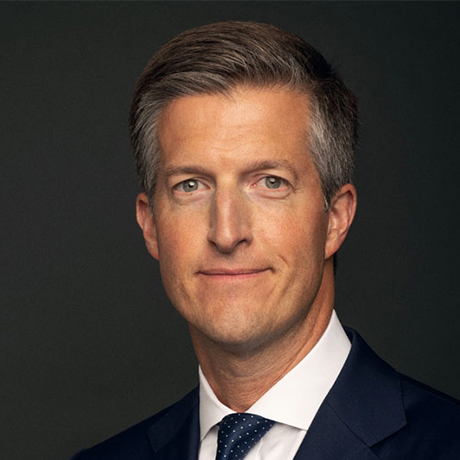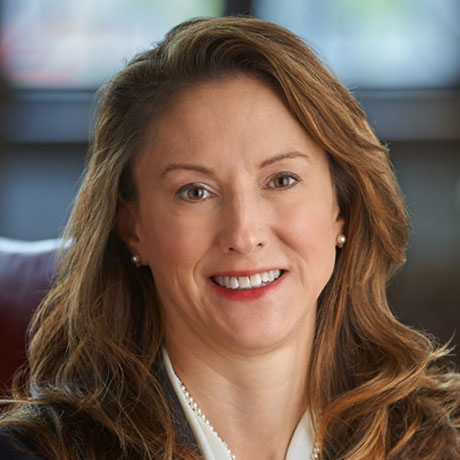Ultra high net worth (UHNW) individuals — defined here as those with assets of $25 million or more — represent a significant potential growth area for advisors. But RIAs manage just a small piece of the UHNW pie. According to a 2021 Cerulli Associates study, half of RIA firms report that high net worth investors comprise less than a quarter of their AUM. How can advisors improve their ability to serve UHNW clients? Based on our conversations with RIA leaders who have built successful practices that serve the complex needs of high-wealth clients, we believe it is essential to first look inward and focus on building the right team.
We spoke with two RIA leaders and members of Capital Group’s RIA Advisory Board — Kurt Miscinski, president and CEO of Cerity Partners, and Catherine Farley, chief financial officer of Oxford Financial Group — about how they have structured teams within their practices to serve this market. Based on these discussions, we grouped their ingredients for success with UHNW clients into the “four C's”: competence, collaboration, commitment and career opportunities.
Ultra high net worth (UHNW) individuals — defined here as those with assets of $25 million or more — represent a significant potential growth area for advisors. But RIAs manage just a small piece of the UHNW pie. According to a 2021 Cerulli Associates study, half of RIA firms report that high net worth investors comprise less than a quarter of their AUM. How can advisors improve their ability to serve UHNW clients? Based on our conversations with RIA leaders who have built successful practices that serve the complex needs of high-wealth clients, we believe it is essential to first look inward and focus on building the right team.
We spoke with two RIA leaders and members of Capital Group’s RIA Advisory Board — Kurt Miscinski, president and CEO of Cerity Partners, and Catherine Farley, chief financial officer of Oxford Financial Group — about how they have structured teams within their practices to serve this market. Based on these discussions, we grouped their ingredients for success with UHNW clients into the “four C's”: competence, collaboration, commitment and career opportunities.
Competence: Providing the right mix of capabilities and collective expertise
UHNW individuals generally need at least five types of professional services: investment, legal, accounting, banking and insurance. A holistic advisory firm with competent experts in most or all of these areas can act as an outsourced family office, and many clients value having access to this range of capabilities in one place or from one central touchpoint.
“It is an aha moment when they get the experience they’ve been looking for. Our clients value having a holistic advisor because they don’t want to have to chase down each of these experts individually,” said Kurt Miscinski. “We structure each client’s team on a bespoke basis depending on their unique situation. We have been very intentional about adding the right mix of capabilities to serve ultra wealthy clients and ensuring we have external partnerships and relationships to pull in when needed.”
As Miscinski noted, that doesn’t mean that you must bring every capability and service in-house. Even a holistic advisory firm will partner with other service providers for specific expertise — for example, legal and tax advice, especially on more technical matters. But to serve UHNW clients, an advisory firm should be competent and knowledgeable in areas like estate tax, wealth transfer, insurance and trust services. Having specialists within the firm who can confidently participate in discussions on these issues is valuable.
“The point isn’t to try to be all-knowing, but to be an issue spotter, problem solver and connector for clients,” Miscinski added. “Advisors who tend to have the most success with ultra wealthy clients tend to be the best quarterbacks and coordinators, not necessarily the deepest subject matter experts.”
“The point isn’t to try to be all-knowing. Advisors who have the most success with ultra wealthy clients tend to be the best quarterbacks and coordinators, not necessarily the deepest subject matter experts.”
Kurt Miscinski
President and CEO, Cerity Partners
Collaboration: Just as important as technical expertise
Specialists within a firm may hold different, even conflicting, opinions on how to approach a given issue for a client. It is healthy to build a culture in which people feel empowered to advocate for what they believe is the best approach. “We encourage all team members, regardless of their seniority, to contribute and share ideas on the best path forward for each client,” said Catherine Farley. “We have discovered that creativity and outside-the-box thinking can be particularly valuable when serving the complex needs and issues of higher wealth clients.”
When recruiting new team members, seek ways to evaluate their strategic creativity and propensity to collaborate. This could be accomplished by using case studies about hypothetical client issues, for example. “Our leading criteria for evaluating new team members are technical expertise, emotional intelligence and a bit of entrepreneurial spirit and growth mindset,” said Miscinski. “We look for good listeners, effective communicators and the ability to collaborate in a way that represents the firm well to clients.”
“When recruiting new team members, we actively screen for collaboration,” Farley noted. “We have found that team members who are more agile, open to learning new things, able to communicate effectively across departments, and willing to take suggestions are a good fit for serving wealthy clientele. We look for more than technical proficiency — emotional intelligence is just as important.”
Commitment: Serving both clients and colleagues
To meet the varied and often demanding needs of UHNW clients, advisors should focus on building a team that is naturally oriented to client service.
“Our overall objective is to help our clients meet their financial goals and get more fulfillment and enjoyment out of life now,” said Miscinski. “To do that, our team has to thoroughly understand their clients’ needs and focus on meeting them every day, even down to the granular details. This may mean investigating whether a client can obtain better insurance coverage, collecting royalty income or even making sure the utility bills are paid at a client’s various residences. Some of these issues may sound mundane, but the little things tend to matter for wealthy clients.”
This level of commitment doesn’t just apply to how advisors serve clients; it also means supporting colleagues within the firm. According to both Farley and Miscinski, well-organized onboarding and training programs can be instrumental to establishing the culture and processes required to serve this client segment.
“Every new hire goes through a week of the same training, regardless of their experience, to learn our approach,” Farley noted. “We tailor additional training based on each individual’s responsibilities. And experts in each area meet regularly to share information, improving everyone’s knowledge base.”
“Regardless of a colleague’s physical location, all team members go through the same training program,” Miscinski added. “This shared experience builds bonds between colleagues and has been instrumental in establishing a consistent culture across our organization. We also use case studies, mock client meetings and regular sessions with subject matter experts to build our team members’ knowledge and confidence.”
“We are very thoughtful about creating development goals that keep team members on a clear and achievable growth path. This not only helps us to retain good people but also provides continuity that UHNW clients value.”
Catherine Farley
Chief Financial Officer, Oxford Financial Group, Ltd.
Career opportunities: Keeping your team invested and building continuity
The UHNW market is very service-intensive and demands a team effort that includes both experienced professionals and junior client service resources. Talented junior team members can be especially important when serving younger client generations. Successful firms consciously work to retain talent at all levels by providing a supportive organizational structure, resources and clear career paths.
“We have invested a lot of time and energy into building career paths for junior team members and encouraging their progression,” Farley said. “If we don’t do this, we risk losing junior talent who could eventually lead our firm. We are very thoughtful about creating development goals that keep team members on a clear and achievable growth path. This not only helps us retain good people but also provides continuity that UHNW clients value.”
To put Farley’s advice into action, consider establishing formal development and goal-setting programs tailored to each team member. Carving out time to build a plan that works for them and revisiting their processes regularly will demonstrate that you are truly invested in their future.
Building your ultra capable team
Serving the UHNW market takes a committed team of competent specialists, supportive resources and a culture that values collaboration and provides meaningful career opportunities. If you are interested in further exploring how your firm can improve its approach to serving UHNW clients, read our recent article Keys for building an ultra high net worth practice or consider scheduling a consultation with a Capital Group wealth strategist today.
Kurt Miscinski is the president and chief executive officer of Cerity Partners, and is responsible for the strategic direction and management of the firm. He has more than 20 years of experience in the financial services industry. Kurt chairs the Operating Committee and Executive Committee. Kurt holds a Master of Business Administration from DePaul University.
Catherine Farley is chief financial officer for Oxford Financial Group, Ltd. She is a member of the Senior Management Committee and Value Council Committee and is responsible for the finances of Oxford. She holds a Bachelor of Business Administration, emphasis in Accounting from the University of Michigan.
 Kurt Miscinski
Kurt Miscinski
 Catherine Farley
Catherine Farley